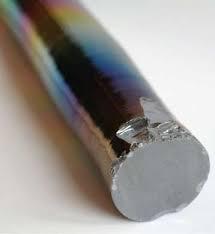LIB Anode Market Overview: Growth Drivers, Material Trends, and Global Scope

The LIB anode market is an essential segment of the lithium-ion battery ecosystem, supporting the growing global demand for electric vehicles, renewable energy integration, and portable electronic devices. As the world accelerates its transition toward cleaner technologies, the performance, safety, and sustainability of lithium-ion batteries depend heavily on the innovation and availability of efficient anode materials. This article offers a comprehensive market overview covering critical elements like material preferences, industry dynamics, regional distribution, and future opportunities.
1. Market Definition and Scope
The LIB anode market encompasses the production, development, and commercialization of materials used as anodes in lithium-ion batteries. The anode serves as the negative electrode in the battery and plays a crucial role in determining charge capacity, efficiency, and cycle life. The primary materials in use today include natural graphite, synthetic graphite, silicon, and lithium titanate, each selected based on application-specific requirements such as energy density, charging speed, and safety.
LIB anodes are vital components in batteries used across electric vehicles (EVs), energy storage systems (ESS), consumer electronics, power tools, medical devices, and aerospace applications. The market’s scope continues to expand as demand for reliable and long-lasting batteries grows across multiple sectors.
2. Current Market Landscape and Dominant Materials
Natural graphite remains the most commonly used anode material, accounting for the majority of global demand. It is preferred for its availability, cost-effectiveness, and balanced performance characteristics. Synthetic graphite, produced from petroleum coke, is gaining popularity for its superior purity, consistency, and performance in high-demand applications like electric mobility.
Silicon-based anodes, while still in the early stages of commercialization, are gaining interest due to their significantly higher theoretical capacity. They are being developed in composite forms—such as silicon-graphite blends—to mitigate issues like volume expansion and degradation during charging cycles.
Lithium titanate (LTO) is a niche material with fast-charging capabilities and excellent safety but lower energy density. It is ideal for specific use cases like hybrid buses, grid storage, and military applications.
3. Key Market Drivers
Several core factors are driving the LIB anode market’s expansion:
-
Rising Electric Vehicle Adoption: As EV manufacturers push for higher energy density and faster charging, the demand for advanced anode materials is increasing. Silicon and synthetic graphite are especially promising in this space.
-
Growth in Energy Storage Systems: Renewable energy integration requires efficient energy storage. LIB-based storage solutions depend on long-lasting, safe anode materials.
-
Consumer Electronics Proliferation: Smartphones, laptops, wearables, and tablets continue to require compact, high-performing lithium-ion batteries.
-
Ongoing Material Innovation: Research into composite anodes, nano-structured materials, and next-gen coatings is shaping the future of battery performance and durability.
4. Regional Market Highlights
-
Asia-Pacific: Dominates the global market due to its extensive manufacturing base. China leads in both natural and synthetic graphite production, supported by favorable policies and large-scale demand from domestic EV and electronics markets.
-
North America: Gaining momentum through investments in local graphite mining, synthetic material development, and silicon anode startups. U.S. policies like the Inflation Reduction Act aim to localize battery supply chains.
-
Europe: Focusing on sustainability and energy independence. European countries are investing in green battery initiatives, circular economy practices, and regional supply resilience.
5. Competitive Landscape and Industry Collaboration
The market is characterized by a mix of established chemical companies, battery manufacturers, and emerging startups. Key players are forming joint ventures, licensing agreements, and R&D collaborations to stay ahead in the innovation race. Companies are also securing long-term supply agreements with automotive and energy firms to ensure consistent demand for their anode products.
Investment in production scale-up, pilot plants, and material optimization is strong, particularly in silicon-based technologies. Simultaneously, recycling startups are emerging to create closed-loop systems that recover valuable anode materials from used batteries.
6. Challenges and Opportunities
While the LIB anode market shows strong growth potential, it also faces challenges:
-
Raw Material Supply Risk: Heavy reliance on China for graphite raises concerns about geopolitical risks and supply disruption.
-
High Cost of Silicon Integration: Despite its benefits, silicon is expensive and difficult to scale at commercial volumes.
-
Environmental Concerns: Mining and production processes must evolve to align with global sustainability goals.
On the flip side, these challenges open up opportunities for material innovation, regional diversification, and green processing technologies. Recycling and circular economy initiatives present significant long-term benefits.
Conclusion
The LIB anode market stands at the forefront of global energy transformation. With surging demand from EVs, ESS, and electronics, combined with material breakthroughs and regional investments, the market is set for robust, sustained growth. As innovation accelerates, the industry will continue to evolve—balancing performance, cost, and sustainability to meet the needs of the next generation of lithium-ion batteries.
- Art
- Causes
- Crafts
- Dance
- Drinks
- Film
- Fitness
- Food
- Игры
- Gardening
- Health
- Главная
- Literature
- Music
- Networking
- Другое
- Party
- Religion
- Shopping
- Sports
- Theater
- Wellness


